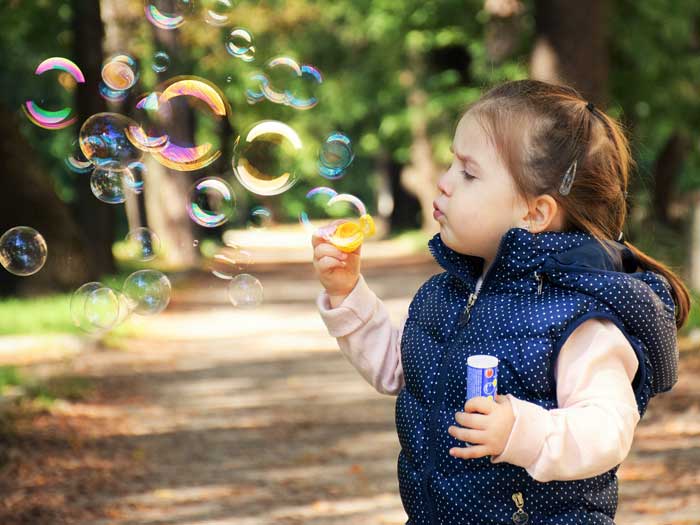Why Does my Kid’s Breath Smell?

Bad breath. It’s that moment when your kid’s trying to tell you about his day at school and you about swerve into the wrong lane when you get a whiff of his breath. Was it something in his lunch? Did he not brush his teeth this morning? Did he drink from a mud puddle at recess? Why does his breath smell so bad? And what can you do to help?
There are several possibilities to explore. Let’s talk about them. The fancy name for bad breath is “halitosis,” and it’s a common but somewhat annoying and embarrassing struggle.
Typical Causes of Bad Breath
Chronic bad breath can be an indicator of some other serious health problems, so if your child regularly struggles with bad breath, you should talk to your child’s dentist and/or pediatrician because it’s not something to just ignore. That being said, let’s take a look at the two most common causes of bad breath and what you can do about them!
Common Cause #1:
As with many mouth-related challenges, bacteria is the primary culprit behind the bad-smelling breath. Poor tooth-brushing habits can definitely allow for odor-causing bacteria to continue to reside and multiply in the mouth. Interestingly, nearly 90% of bad-breath breeding bacteria live on the tongue, so one simple breath-improving step is to teach your children to brush their tongues every time they brush their teeth. If the halitosis is primarily bacterial in nature, tongue-brushing and consistent, thorough toothbrushing with a soft-bristled toothbrush, should make a difference!
Common Cause #2:
It’s also true that certain foods, such as garlic, onions, cheese, and sodas, have, let’s say, lingering effects on one’s breath: effects that can be hard to mask as long as the food source is still in your system. The good news in this scenario is, of course, 1) that you have the option of avoiding foods that cause this issue and 2) that it’s just an annoyance, not an actual health challenge.
Some Causes of Chronic Bad Breath
Most of the time, your kid’s smelly breath is being caused by one (or both!) of the above causes, but occasionally, chronic bad breath is a symptom of a more serious condition. Let’s discuss that for just a minute.
A few other causes of bad breath include:
- Infections in the mouth or nasal cavity. Once again, bacteria are the culprits, but in this case, they have already infected the gums (a disease called periodontitis) or perhaps your sinuses, and there, in hard-to-reach places, they are communicating their presence by producing that horrible stench that just won’t go away. If you think your child may have some type of infection, consult your dentist for treatment in order to identify and treat the infection and to repair any existing damage to the gums.
- Foreign objects stuck in the nasal passages. You may laugh, but parents know this is no joke! You’ve probably saved your toddler from plugging her nose with a bead or other small object many times. Bacteria love to congregate on and around foreign objects, and, once again, a high bacteria level in the oral or nasal cavities leads to foul-smelling breath.
- Other diseases. Diabetes, salivary gland dysfunctions, and (rarely) kidney or liver disease can all contribute to halitosis. If your dentist is unable to determine the cause of chronic halitosis, it’s possible that he will refer you to a doctor in order to examine these other potential causes.
Thankfully, the secondary set of causes occurs significantly less than the two prime offenders! As a parent, though, if you have concerns about your child’s bad breath issues, it’s always a good idea to follow through on those concerns by talking with your dentist and/or pediatrician! We are your partners in maintaining your child’s oral health.
